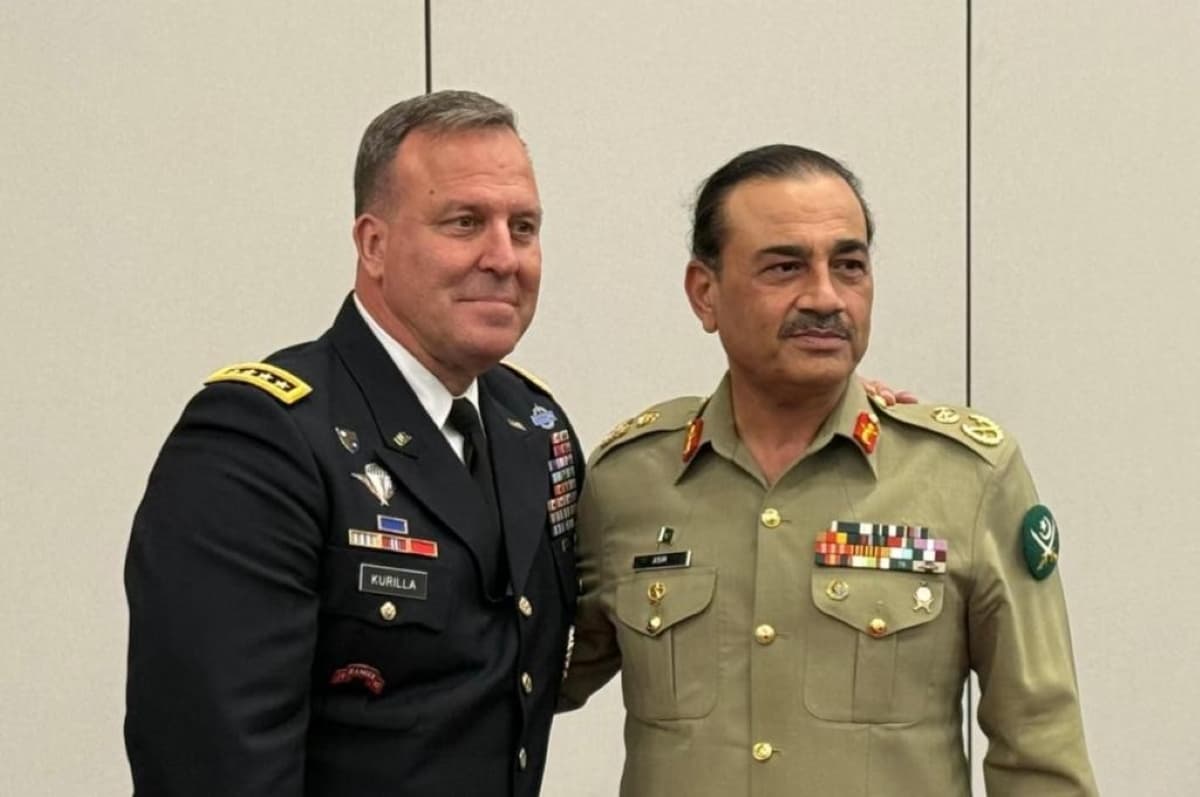UPDATE: In a shocking development, Pakistan’s military chief, Field Marshal Asim Munir, has significantly increased his power just as the United States strengthens its ties with Islamabad. This pivotal moment raises serious concerns over Pakistan’s support for terrorism and its growing military dominance.
The Pakistani Parliament has just passed a sweeping constitutional amendment, granting Munir expanded authority and lifetime immunity from arrest and prosecution. Signed into law last Thursday, this move tightens the military’s grip over the political landscape, intensifying fears about a shift toward full military control in a nation already viewed as an army-run state.
As Munir consolidates power, the U.S. is actively engaging with him, marking a significant shift in American foreign policy. He has made two visits to the White House in recent months, and was invited to the retirement ceremony of former Central Command chief General Michael E. Kurilla in August. This renewed focus comes amid a backdrop of historical tension between the U.S. and Pakistan over counterterrorism efforts.
Critics argue that Washington’s engagement with Munir is dangerously misguided. Recent reports indicate that following India’s Operation Sindoor—an offensive aimed at dismantling terror bases in Pakistan—Islamabad has allegedly assisted groups such as Jaish-e-Mohammed in rebuilding. Intelligence sources claim that the military has provided compensation and relocated militants to safer areas, undermining U.S. efforts against terrorism.
On September 14, Jaish-e-Mohammed held a recruitment rally in Khyber Pakhtunkhwa, showcasing the military’s tacit support for these groups. Observers noted that Munir had directed the army and air force to pay respect to terrorists killed in operations against India, indicating a troubling alignment of military and extremist interests.
The implications of Munir’s consolidation of power extend beyond terrorism. The traditional U.S. perspective of Pakistan as a key ally is increasingly challenged by the nation’s weakening influence in the region. The Taliban, once viewed as a manageable proxy, have shifted toward economic autonomy, further diminishing Islamabad’s leverage.
On October 9, Pakistan launched airstrikes targeting the Tehreek-e-Taliban Pakistan in Kabul, coinciding with the Afghan foreign minister’s first official visit to India. This reflects Islamabad’s growing anxiety about the evolving Taliban-India relationship.
Pakistan’s strategic depth policy, which aimed to ensure dominance over Afghanistan, is unraveling. The Pashtun population’s resistance to Punjabi rule and rising separatist sentiments in regions like Balochistan threaten the country’s stability. Analysts warn that the military’s focus on internal repression and external aggression may lead to further fragmentation, as the Taliban no longer serve as a reliable ally.
As the U.S. recalibrates its approach, prioritizing Pakistan may prove to be a strategic error. With India emerging as a dominant power in South Asia, the U.S. must consider the long-term implications of its alliance with an increasingly isolated Pakistan.
The stakes are high as the U.S. navigates this complex geopolitical landscape. The consequences of underestimating the shifting dynamics in Pakistan and its impact on regional security could be profound. Observers worldwide are watching closely as both nations redefine their roles in a rapidly evolving scenario.
Stay tuned for more breaking updates on this developing story.







